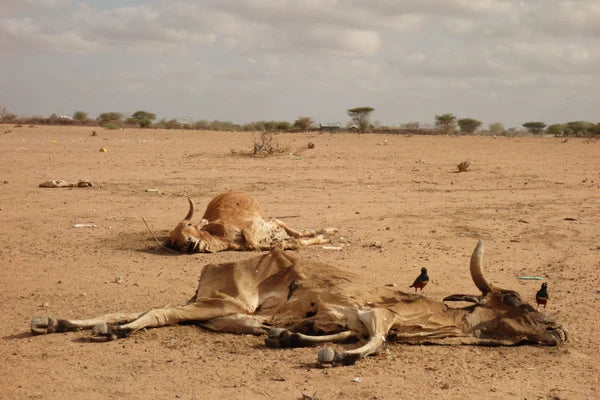The Ivory Ella t-shirt hanging in your closet is doing more than looking good. The donation that each product makes to Save The Elephants is currently being used to help elephants facing severe drought in Africa.

NORTHERN KENYA
This year has been extremely challenging for Northern Kenya, which is where the Samburu National Reserve is located. Since September, this region has received less than thirty percent of its normal rainfall, making it one of the worst droughts in decades. Animals are dying due to lack of food, water shortages, and insufficient resources. They have begun to migrate into foreign territories that are not safe for them. It breaks our hearts that animals are suffering, including wild elephants.

With each additional day that passes, Northern Kenya is growing more and more arid. The conditions are not sustainable for elephants to live in. They are being forced to venture outside of the protected Save The Elephants reserve and into locations where they can find food and water. Unfortunately, this often leads them to enter human communities that do not tolerate elephant destruction. Civilians do not react kindly to wildlife damaging their crops and property. A rise in human-elephant conflict is one of the largest threats resulting from this lack of rainfall.
TSAVO
Unfortunately, the drought is not solely disrupting the Save The Elephants reserve in Northern Kenya. Another research base in Tsavo is also being gravely affected. Tsavo is located in the southern region of Kenya. It is the headquarters for multiple major projects that Save The Elephants is working on. These projects are now being challenged and forced to adapt to new weather conditions.
The primary project that has required reconstruction due to this drought has been the Elephants & Bees project. This award-winning project originated from the need to decrease human-elephant conflict; Humans were killing elephants that entered their farmland seeking food. The solution was creating a Beehive Fence around communities that served as an elephant deterrent, since elephants are terrified of bees. This was a win-win solution that also provided humans with honey. The drought is causing bees to starve and thus leave their Beehive fence in search of better conditions. Save The Elephants workers at the Tsavo base are doing their best to feed and maintain the hives while this dryness continues in hopes to keep human-elephant conflict minimal.

Today, while you’re going about your day, take a minute to think about what is happening on the other side of the globe in Kenya. Save The Elephants is currently running a campaign to help support aerial aircrafts that will watch and protect elephants during their migrations. To help make a difference from your home, make a donation here: https://www.savetheelephants.org/new-donate-page-US-aerial/. Send your gift before midnight on August 16, 2022, and it will be matched by a generous donor - doubling your impact on elephants.




